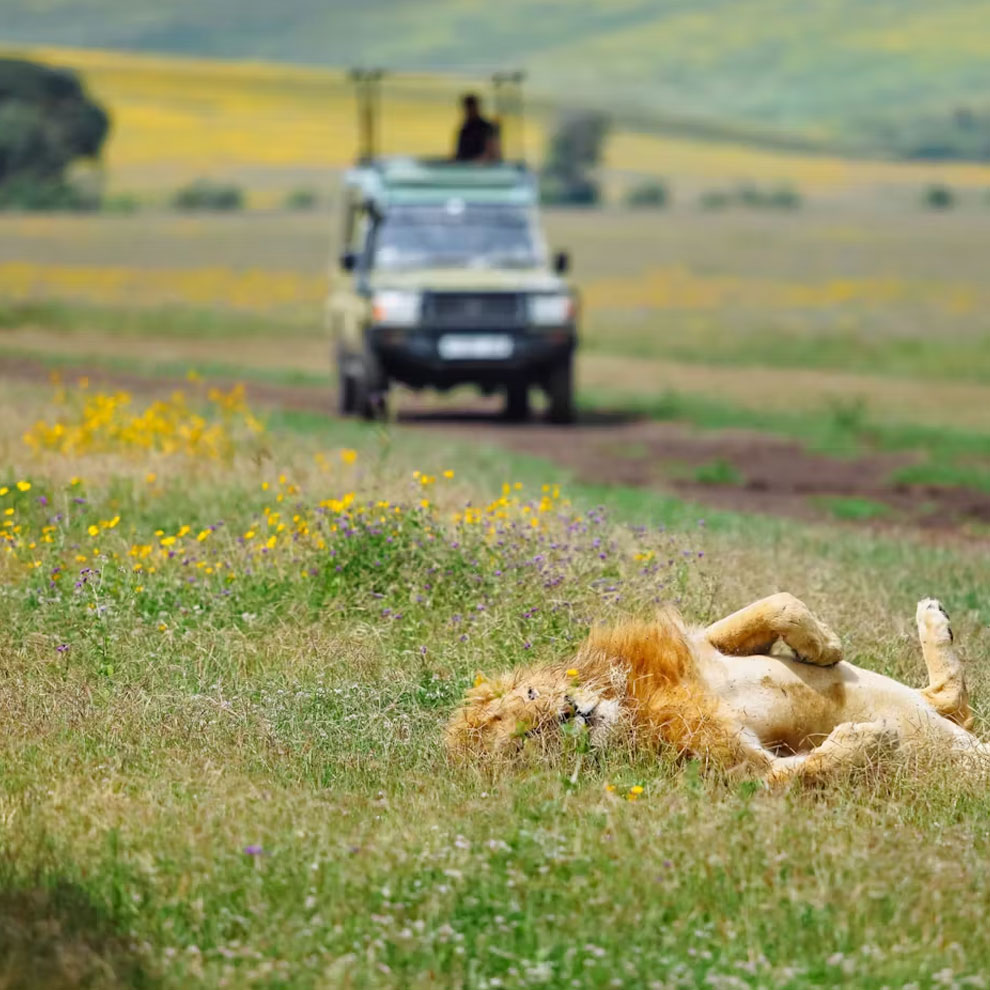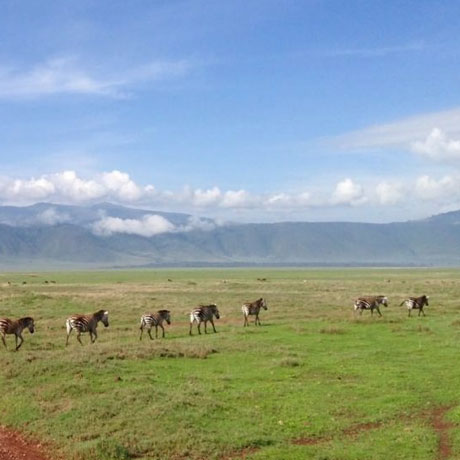Ngorongoro Conservation Area is a natural wonderland that never fails to captivate its visitors with stunning wildlife, picturesque landscapes, and vibrant culture. With so much to see and experience, it's essential to plan your Tanzania Safari Holidays at the right time to make the most of your trip. Here, we'll help you navigate the different seasons and guide you towards the Best Time to Visit Ngorongoro.
From June to October, the dry season is the Best Time of the Year to Visit Ngorongoro. This is because the weather is dry and mild, making it perfect for game viewing. It is simpler to spot wildlife during this season because it is gathered near water sources. You'll have the chance to see the magnificent sight of the Great Wildebeest Migration. The only drawback to travelling during the dry season is that it can get congested and that costs are typically higher.
From November to May, Ngorongoro Conservation Area experiences heavy rains. Many migratory birds come this season, making it ideal for bird watching. Photographers love the lush and green scenery. Wet season wildlife disperses and roads flood, making game viewing challenging. Some lodges and camps may shut down this season. These are not considered the Best Months To Visit Ngorongoro.
Ngorongoro's shoulder season is January–March and November–December. This time is mild and less crowded than the high season. Photography is good because the scenery is green and game viewing is good. This season is a nice compromise for those who want to avoid crowds and still see the wildlife.
When to visit Ngorongoro Conservation Area depends on your preferences and interests. If you want to witness the great wildebeest migration, visit during the dry season. If you're interested in bird watching and don't mind the occasional downpour, visit during the wet season. If you want to avoid the crowds but still have a chance to see the wildlife, visit during the shoulder season.
Ngorongoro Conservation Area mainly has a moderate temperate climate with 2 main seasons. Short rains start from October to November and long rains from March to May. Normally you will encounter rain as showers and occasional thunderstorms. However, it never becomes hot the entire day. But, the edge of the crater might turn cold at night. So, pack some warm clothes to keep yourself warm. Also, it's important to note that the weather patterns will influence the time of your visit to Ngorongoro. So, it's best to check with a local guide or tour operator before booking your Tanzania Safari Holidays.
The main safari activity, game viewing is excellent throughout the year in Ngorongoro Conservation Area, particularly the crater area. But, coming to the important question, When to go to Ngorongoro, depends on individual interests and likings. So, time your Ngorongoro Wildlife Safari well, to get the best out of your trip.

*Except for March & April, most rains are short afternoon storms & don’t interfere with your trip.

Ngorongoro Travel Guide has been the industry's standard dummy text ever since the printer took a galley of type and scrambled it to make a type specimen book. Lorem Ipsum.
Will enlighten you through the best of Tanzania’s sights and help you experience the country’s rich culture and history.
Plan a truly bespoke journey with our Travel Designers today.